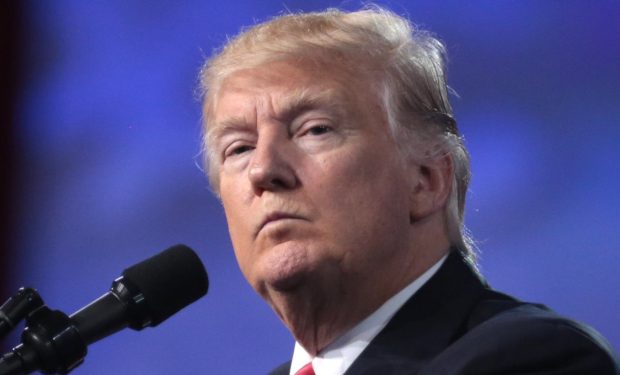As the decision to remove former President Donald Trump from the primary ballots in Colorado makes its way from the Colorado Supreme Court to, inevitably, the United States Supreme Court, the exhaustive 132-page opinion could ultimately hinge on one sentence that describes a brazen claim Trump makes concerning his executive privilege.
The court ruled, as the judge before it had, that Trump’s actions on and prior to January 6, 2021 “constituted overt, voluntary and direct participation” in an insurrection, as Section 3 of the 14th amendment expressly prohibits.
Working from the conclusion that Trump engaged in the insurrection, which it had “little difficulty” reaching, the Colorado Supreme Court assails Trump for essentially claiming that as President Section 3 doesn’t apply to him.
“President Trump asks us to hold that Section 3 disqualifies every oath-breaking insurrectionist except the most powerful one and that it bars oath-breakers from virtually every office, both state and federal, except the highest one in the land.”
Colorado Supreme Court
For the U.S. Supreme Court to strike down the Colorado Court’s decision, it must therefore concur with Trump’s assertion that Section 3 does not apply to him, even as it applies to every other “oath-breaking insurrectionist.” The SCOTUS would have to rule that, in essence, the President is above the law. It’s a position the Colorado Court, in the single sentence above, portrays as an absurdity.
The thoroughness of the Colorado opinion, extolled below by Rep. Jamie Raskin (D-MD), includes reference to an early draft of the amendment, where the “President of the United States” was specifically cited as an “office” which could not be held by insurrectionist oath breakers.
The draft proposal provided that insurrectionist oath-breakers could not hold “the office of President or Vice President of the United States, Senator or Representative in the national Congress, or any office now held under appointment from the President of the United States, and requiring the confirmation of the Senate.” Cong. Globe., 39th Cong., 1st Sess. 919 (1866) (emphasis added). Later versions of the Section—including the enacted draft—removed specific reference to the President and Vice President and expanded the category of office-holder to include “any office, civil or military” rather than only those offices requiring presidential appointment and Senate confirmation.
Colorado Supreme Court
Raskin below explains that the “powerful and exhaustive” opinion was written to eliminate as much ambiguity as possible for the Supreme Court’s consideration.
This is a case brought by Republicans to bar Trump from the GOP ballot because of his participation in insurrection, a rule added to the 14th Amendment by Republicans.
— Rep. Jamie Raskin (@RepRaskin) December 20, 2023
Insurrection, Lincoln said, attacks the people’s right to choose their leaders. pic.twitter.com/YXi0UF7UDe
